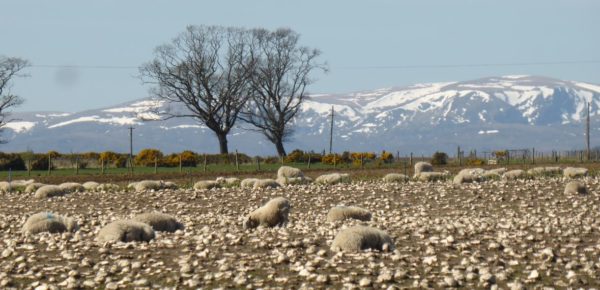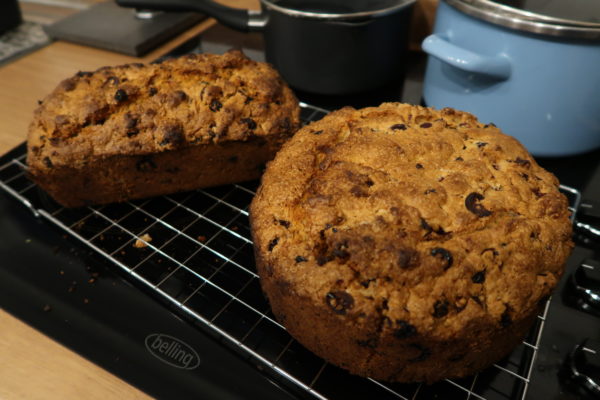
We continue our look at the influence of Gaelic on local usage of English with another wee word that may well not be noticed – “the”.
One obvious Gaelic use of “the” is in expressions of time. How often you say, or hear someone say, “We’re off to Tain the day”? Or “We’ll no get it done the night”?
The Gaelic for today and tonight is an-diugh and a-nochd, and as “an” is the main word for “the” in Gaelic, that’s what Gaelic speakers used when trying to equate their terms with the English. I also recall “the week” and “the year” used for “this week” and “this year” by my grandparents’ generation, another Gaelicism. E.g.
Oh, I doubt we’ll be going anywhere the year! We’ll do it the week yet.
It’s dreich the day. Where’ll we go the day? I’ll no do it the night now, it’s too dark.
We also hear “the“ used with items of clothing, when it’s meant generally not specifically. “Oh, he’s got the suit on – there must be a funeral!” Not a specific suit, but the fact that he’s wearing a suit at all, not jeans and a pullover, is the point being made. Again, this is Gaelic usage. E.g.
He looks good in the jacket. Oh, he wouldn’t go out without the bonnet! The trousers were hanging off him. (Never “his jacket/bonnet/trousers”.)
OK, I’ll put on the jacket, but not the tie! Will you be wearing the hat to the wedding? Not many women are wearing the hat in the church any more. (not “a jacket/tie/hat”.)
This use remains common in “He looks good in the kilt”.
Gaelic also uses the definite article “the” in places where English has no article at all, not even an “a”, especially institutions. You still hear the occasional use of “the” here in local speech, though I’ve noticed it’s less common than it was. (The Scots language too tends to use “the” more in this context, whether under Gaelic influence or from its Germanic roots.) E.g.
The bairns are all going to the school/ the nursery now. She’s in the hospital. He’s at the university / the college. It’s 12 o’clock – they’ll be at the church now. Those folk in the parliament!
The same applies to languages – Gaelic tends to use “the” before them, and traces of this remain. E.g.
Does she have the Gaelic? He’s very good at the French. They translated the Bible into the English.

There’s another way “the“ is used that’s very Gaelic, and you certainly still hear this one a lot – when saying what activity or occupation someone is engaged in, especially when it’s a common one, usually with “at the….”, in Gaelic “ris an..”, such as ris an iasgach – at the fishing. E.g.
What’s Iain up to these days? Oh, he’s at the fishing / painting / building. He’s still at the crofting / farming / teaching. They’re at the spreading / ploughing / planting now.
And by extension: at the turnips, at the barley, at the creels, at the lobsters, at the lug.
The bairns are at the taties. It’s a good drying day – everyone’ll be at the washing.
We’ve got visitors coming – it’s at the baking I’ll be the day, I’m afraid! She’s always at the pancakes. I see you’re at the gardening / weeding again.
He’s always at the golf / football / bowling etc. The girls are at the dancing.
My childhood passion for books was well-known – people would often ask my parents “Is she still at the reading?”. (And I still am. 😉 )
So we’ve added another wee word to look out for in Seaboard English, along with the “in it”, “on” and “after” we looked at before. Keep sending me examples of such local turns of phrase, as well, of course, as any local words for things. Thanks in advance!
.… you’ve been at the baking the day!
Thanks to Jim Mackay for the photo of the ploughing match at Udale Farm Feb. 2020.

